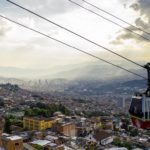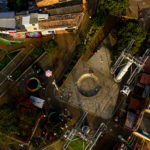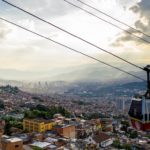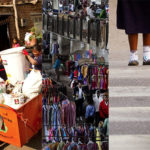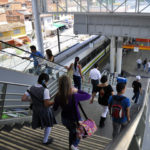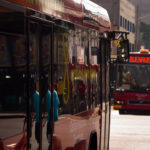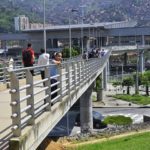Posts tagged with 'Medellin'
When Hurricane Katrina hit New Orleans 14 years ago, hundreds of thousands of people lost their jobs, homes and possessions. But some people were hit harder than others. Nearly two-thirds of jobs lost after the hurricane were lost by women, and ...

Around the world, grassroots movements like Extinction Rebellion and Fridays for Future are sounding the alarm about the climate crisis, and government representatives are responding to the call: national parliaments and cities have declared climate emergencies, the Green New Deal is gathering support in ...

Positive change happens in cities, but it’s often lost in a sea of bad news about air pollution, rising costs of living, traffic jams and inequality. When we launched the WRI Ross Prize for Cities in February 2018, we aimed ...

Last week, I had the pleasure of participating in a day-long roundtable discussion with the five finalists for the WRI Ross Prize Cities, organized by WRI at the Ford Foundation in New York City. The roundtable followed the first-ever award ...

Metrocable is a finalist for the WRI Ross Prize for Cities. Medellín, Colombia, used to be the murder capital of the world. With the explosion of the global drug trade in the 1980s, crime burgeoned, plunging the city into ...

Urbanization is changing the face of the planet – for better and for worse. City populations, GDP and investment are increasing exponentially. At the same time, carbon emissions are rising, more and more people are living in slums, and air pollution ...

At a recent Latin American Development Bank (CAF) Infrastructure for Development Conference in Buenos Aires, regional experts and policymakers delved into the unique urban landscape for the area, from early approaches to modern challenges around inequality and better service. Pre-Incan ...

Urban leaders from around the world are meeting in Quito, Ecuador, October 17-20, 2016, to set the global agenda for the future of cities at the United Nations Conference on Housing and Sustainable Urban Development, known as Habitat III. Through ...

Last week, over 4,000 people gathered for the fourth World Bicycle Forum. This citizen-driven event was created by bike activists in Porto Alegre, Brazil after a car plowed through a group of bikers at a critical mass event in March ...

Latin America’s rate of urbanization peaked in the 1960s and 1970s, during which the region’s cities saw unprecedented rural to urban migration. In the following decades, violence in many of these population-drained rural areas accelerated the flow of rural migrants ...

This article was originally published on January 15, 2015 by the Thomson Reuters Foundation. Last year marked an important tipping point: for the first time, half of the global population lives in cities. Cities currently add 1.4 million people each ...

How can we ensure that all urban inhabitants have the necessary rights and conditions for a dignified and secure existence in the city? As the world rapidly urbanizes, the livelihoods, health, and safety of residents living in informal settlements remain ...

In 2004, Medellín – the second largest city in Colombia – introduced the Medellín Metrocable system to connect low-income residents to public transport. As the world’s first modern urban aerial cable car transport system, this innovative addition to Medellín’s existing ...

Over 22,000 attendees gathered in Medellín, Colombia for the Seventh World Urban Forum (WUF7) from April 5 – 11, 2014, sharing ideas, experiences, and challenges for creating more sustainable and equitable cities. The conclusion of the WUF7 saw the release ...

In recent months, popular protests have broken out in cities around the globe. The causes were different: soaring pollution in Beijing; violent gender-based crime in New Delhi; and access to public services in São Paulo. But, for each, inequality was ...












